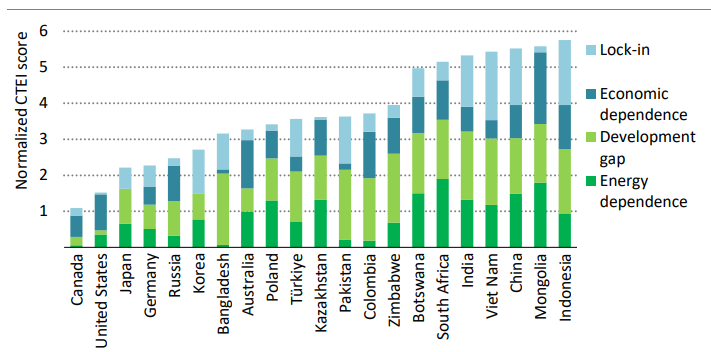Vietnam’s Big Global Partnership Gets a New Launch, But Bigger Tests Lie Ahead
Though one of Asia's fastest-growing economies is playing a key role in the evolution of a new climate partnership mechanism, uncertainties remain as to its exact trajectory.
Vietnam’s recent opening of a new secretariat spotlighted the ongoing development of a big, notable international energy partnership for one of Asia’s most populous, diplomatically active and fastest-growing economies, but it also belies some of the bigger tests that lie ahead that could have implications not just for Hanoi, but the wider regional and global conversation around climate geopolitics, energy transitions and economic development models.
WonkCount: 1,811 words (~9 minutes reading time)
Vietnam’s Big Global Partnership Gets a New Launch, But Bigger Tests Lie Ahead

Background
The increasingly urgent quest to manage climate change has led to the pursuit of various financing mechanisms, with the Just Energy Transition Partnership (JETP) being one of them and Vietnam being a recipient country. JETPs are financing mechanisms designed to help key emerging economies make an energy transition away from coal by mobilizing supporting resources in a multistakeholder model and addressing the social consequences of that transition. Following the first JETP agreed to for South Africa in 2021, Vietnam along with Indonesia saw deals sealed in 2022, and other countries like India have been in JETP discussions as well1. The inclusion of Vietnam, one of the world’s most populous, diplomatically active, fastest-growing and energy-hungry countries, came as little surprise given the country’s significance as it relates to the objectives of JETPs.
Initial JETP Country Launches to Date
Though Vietnam’s JETP does hold promise, much of the details remained unclear from the outset. On the one hand, with Vietnam ranking as one of the world’s highest and most dependent coal users in assessments such the International Energy Agency’s Coal Transitions Exposure Index (see image below, with the report containing more granular metrics as well such as the relative youth of the country’s coal fleet), there is a logic to providing more assistance that could help Hanoi shed its reliance on coal sooner and help it craft more ambitious energy targets2. On the other hand, issues such as the extent and terms of financing as well as transparency, governance and bureaucratic issues impacting Vietnam’s energy sector were at issue even leading up to the unveiling of the Vietnam JETP. Some of these sectoral realities had also been at play in other developments of concern to businesses, such as the years-long delay of the country’s new power development plan (PDP8) that was finally issued in May and also briefly covered in these pages in our weekly BulletBrief.
Coal Transitions Exposure Index Scores
Significance
Seen from this perspective, inroads with respect to Vietnam’s JETP do warrant attention from a wider regional and global perspective. And late last week, we saw a case in point with an update on the launching of a new JETP secretariat.
Vietnam’s government issued a launch announcement on the establishment of the JETP secretariat on July 14. The announcement was issued by way of an official government decision, and it came amid other engagements as well, including the convening of a government steering meeting on Vietnam’s climate commitments and consultations between the executive director of the Glasgow Financial Alliance for Net Zero and the Vietnamese government3. It came about three months later than the initial timeline of the JETP declaration, which had mentioned that the secretariat would be established by April 2023 (such a delay is not unique to Vietnam’s JETP — in the case of Indonesia’s JETP, for example, the launch of Indonesia’s JETP Secretariat came around the three month mark in February 2023 as had been outlined in the November 2022 joint statement, but further specifics on the investment and policy plan have been delayed past the initial timeline of six months from when the JETP was established).
Key Provisions of Vietnam JETP Political Declaration
Irrespective of the timing, in the case of Vietnam’s JETP, such announcements are also important in that they provide context for how Hanoi is managing both internal national coordination as well as external cooperation with international partners. This context is significant given the structural realities at play both in the evolution of energy policies such as PDP84, as well as the calibration between party interests and foreign alignments (see a snapshot of original text, link to the original document and more detailed elaboration below)5.






